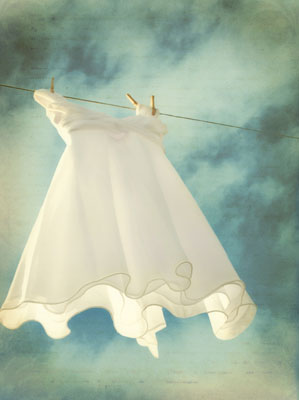All Nonfiction
- Bullying
- Books
- Academic
- Author Interviews
- Celebrity interviews
- College Articles
- College Essays
- Educator of the Year
- Heroes
- Interviews
- Memoir
- Personal Experience
- Sports
- Travel & Culture
All Opinions
- Bullying
- Current Events / Politics
- Discrimination
- Drugs / Alcohol / Smoking
- Entertainment / Celebrities
- Environment
- Love / Relationships
- Movies / Music / TV
- Pop Culture / Trends
- School / College
- Social Issues / Civics
- Spirituality / Religion
- Sports / Hobbies
All Hot Topics
- Bullying
- Community Service
- Environment
- Health
- Letters to the Editor
- Pride & Prejudice
- What Matters
- Back
Summer Guide
- Program Links
- Program Reviews
- Back
College Guide
- College Links
- College Reviews
- College Essays
- College Articles
- Back
Woman's Work by Julia Alvarez
Who says a woman's work isn't high art?
She'd challenge as she scrubbed the bathroom tiles.
Keep house as if the address were your heart.
We'd clean the whole upstairs before we'd start
downstairs, I'd sigh, hearing my friends outside.
Doing her woman's work was a hard art.
to practice when the summer sun would bar
the floor I swept till she was satisfied.
She kept me prisoner in her housebound heart.
She's shine the tines of forks, the wheels of carts,
cut lacy lattices for all her pies.
Her woman's work was nothing less than art.
And I, her masterpiece since I was smart,
was primed, praised, polished, scolded and advised
to keep a house much better than my heart.
I did not want to be her counterpart!
I struck out...but became my mother's child:
a woman working at home on her art,
housekeeping paper as if it were her heart.
I love this poem---it reveals just how hard it is to be a woman keeping house. People sometimes forget that just because a woman’s husband leaves the house to “bring home the bacon”, that she just sits around in a bathrobe, eating bon-bons and watching soap operas. Okay, so maybe that mental picture is a bit of a cliché, but you get the idea. The woman has it easy, while the men have it rough. It was someone who said: “A woman’s work is never done.” Today, even though women make up a significant portion of the workforce, there is still a need to make sure the house is in order. There is a growing number of “Mr. Moms”, men who stay home to take care of the house and the kids, but tradition and history still tell us that society looks to the women to fulfill these needs.
It is hard work taking care of a house---laundry, dinner, vacuuming, dishes---and that’s just the short list. The speaker in the poem is a young girl, helping her mother clean the house. The young girl is frustrated; she’d rather be outside, enjoying her childhood. She is kept in her mother's prison, made to sweep the floor until she gains approval. The mother is repeating the cycle by teaching her daughter to clean at such an early age. This could be construed as part of a culture that is not to be questioned by the young. In other words, mother knows what's best. Toward the end, the young girl is determined not to have the same fate as her mother. However, she came out the same way, focusing on her art at home.
This woman is a subservient wife, paying more attention to cleaning a house instead of keeping her own heart. The husband is not mentioned anywhere is the poem, suggesting that he is elsewhere. His wife spends all of her time cleaning, while he is probably at work. There is no indication that she is happy or even content in her position of the household.
This idea that a woman is to be treated like a second class citizen in her own home should cease now. Today, a woman is capable of doing both, balancing her family and her career. I realize that there are still some people who believe that a woman's place is at home, keeping house and raising the children. Of course there is nothing wrong with this---but that position should be given respect and that person treated as an equal in the home.
Born in 1950s New York City to Dominican parents, Julia Alvarez has contributed several poems and novels to the literary community. Her other works include: How the Garcia Girls Lost Their Accents, In the Time of Butterflies, and The Other Side/El Otro Lado. In her success as a writer and a poet, Alvarez has used her advantage as a Dominican-American to provide a different perspective. Her cultural upbringing shows presence in works like “Woman’s Work.”

Similar Articles
JOIN THE DISCUSSION
This article has 20 comments.
